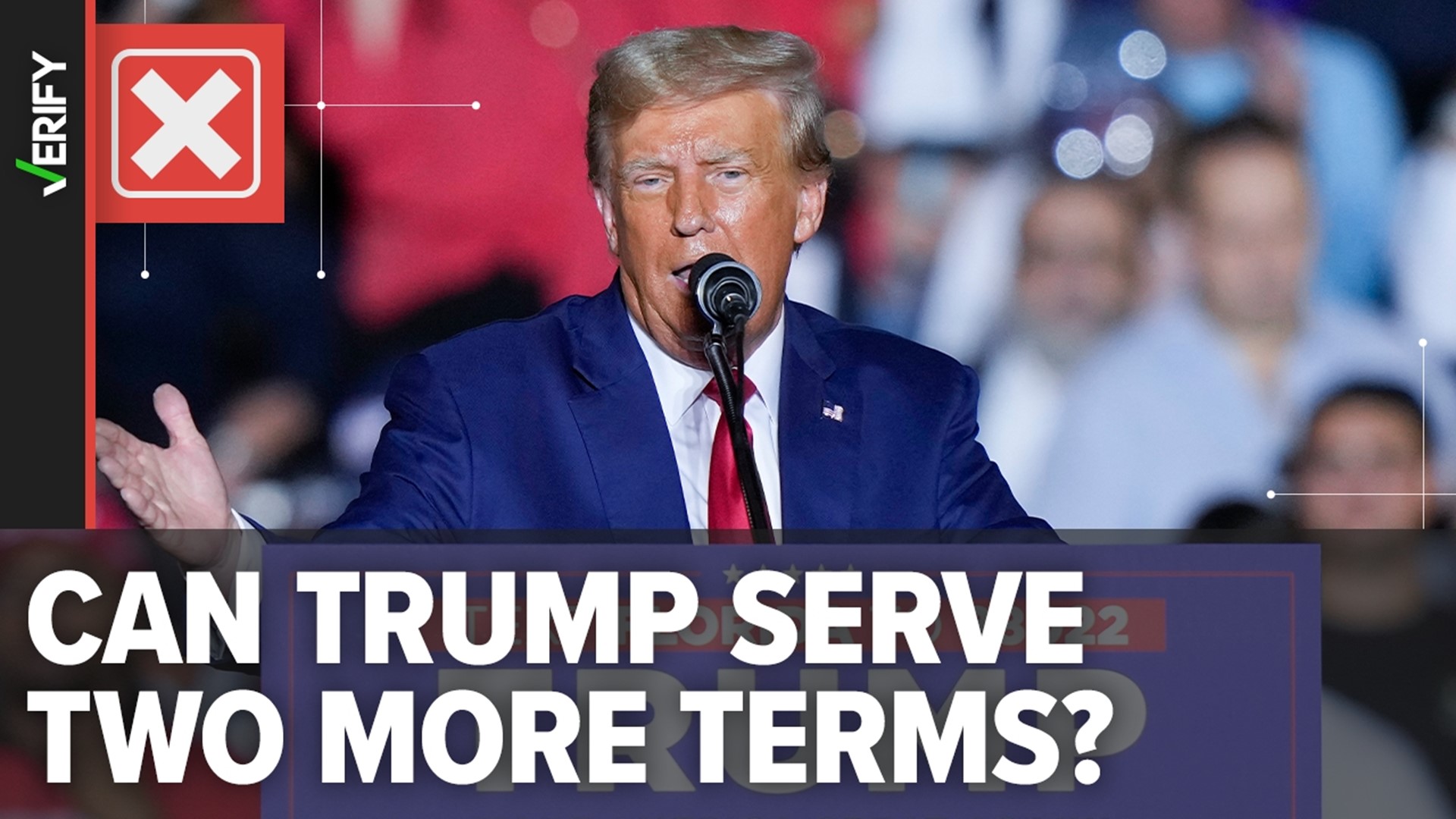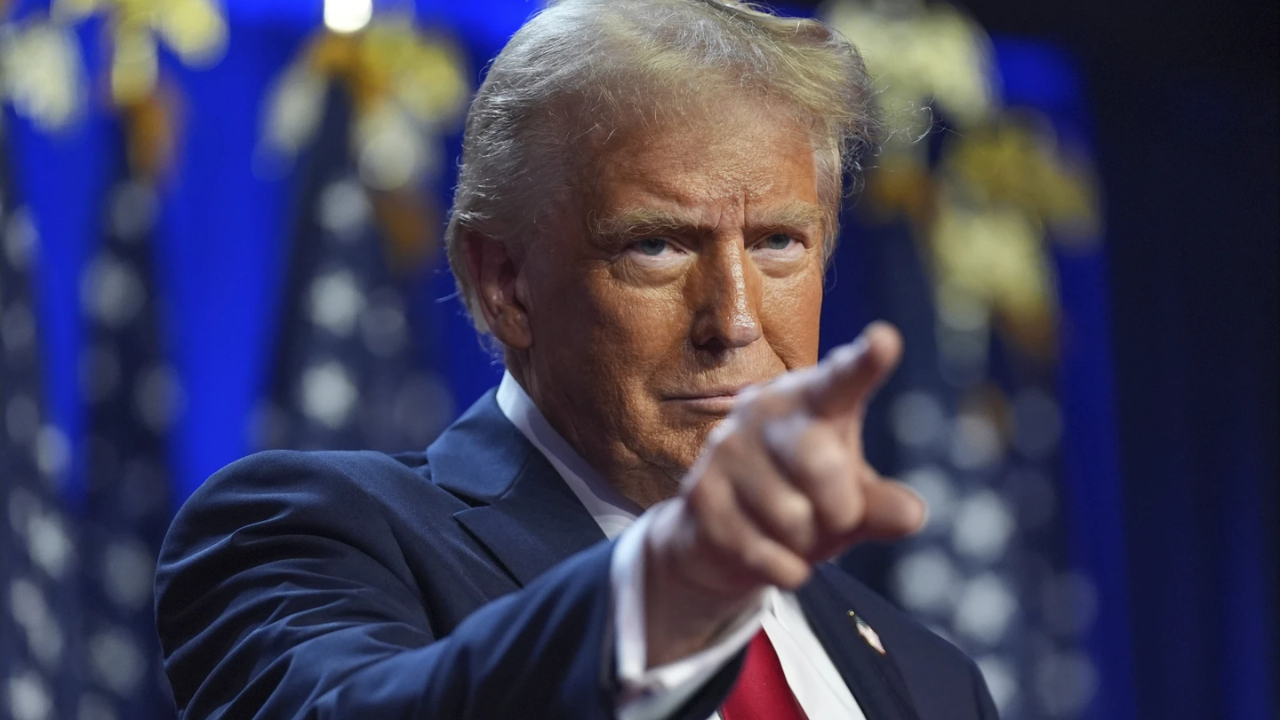Donald Trump's political journey has always been a topic of immense interest and debate, both domestically and globally. The question of whether Trump could run for president again in 2024 or even 2028 has sparked numerous discussions among political analysts, legal experts, and the general public. As the former president continues to remain a dominant force in American politics, understanding the legal, political, and practical aspects of his potential candidacy is crucial for anyone following U.S. politics.
Since leaving office in January 2021, Trump has remained active in the political arena, endorsing candidates, speaking at rallies, and making headlines with his statements and actions. This ongoing presence raises questions about his intentions for future elections, particularly in 2028. Could Trump run for president again in 2028? This article delves into the details, examining the legal framework, political landscape, and public opinion surrounding this possibility.
Whether you are a supporter or a critic of Trump, understanding the factors that could influence his decision to run again is essential. From constitutional limitations to the evolving political climate, this article provides a comprehensive analysis of the key issues that will shape the debate around Trump's potential 2028 presidential bid.
Read also:How To Master Iot Deployment Using Raspberry Pi Platform
Table of Contents
- Constitutional Eligibility: Can Trump Run Again?
- Legal Challenges and Ongoing Investigations
- The Political Landscape in 2028
- Public Opinion on Trump's Potential Candidacy
- A Brief Biography of Donald Trump
- Biodata of Donald Trump
- Historical Precedents and Comparisons
- Potential Campaign Strategy for 2028
- Challenges and Opportunities for Trump in 2028
- Conclusion and Final Thoughts
Constitutional Eligibility: Can Trump Run Again?
The first and most fundamental question when discussing Trump's potential candidacy in 2028 is whether he is constitutionally eligible to run again. The U.S. Constitution's 22nd Amendment, ratified in 1951, limits a president to two terms. However, this limitation applies only to consecutive terms. Since Trump served only one term, he is eligible to run again in the future.
It is worth noting that this rule was established after Franklin D. Roosevelt's unprecedented four-term presidency, aiming to prevent any president from holding office for an extended period. While some critics argue that allowing a former president to run again undermines democratic principles, others believe it preserves the people's right to choose their leader.
Key Takeaway: Trump is constitutionally eligible to run for president again in 2028, as the 22nd Amendment does not prohibit non-consecutive terms.
Legal Challenges and Ongoing Investigations
One of the most significant factors that could affect Trump's ability to run for president again is the legal challenges he currently faces. Since leaving office, Trump has been involved in numerous investigations, lawsuits, and legal proceedings. These include allegations related to financial misconduct, election interference, and other matters.
Notable Legal Cases
- Georgia Election Interference Case: Trump faces potential criminal charges for allegedly attempting to influence the outcome of the 2020 election in Georgia.
- January 6 Investigation: The House Select Committee's investigation into the Capitol riot could lead to further legal consequences for Trump and his associates.
- Manhattan DA Investigation: A criminal investigation led by the Manhattan District Attorney's office focuses on Trump Organization's financial practices.
While these cases are ongoing, their outcomes could significantly impact Trump's political future. If convicted of a felony, Trump might face disqualification under state laws that bar felons from holding public office. However, this would depend on the specific laws of the states where he is running.
The Political Landscape in 2028
By 2028, the political landscape in the United States will likely have undergone significant changes. Demographic shifts, evolving voter priorities, and the emergence of new political figures will all play a role in shaping the election. Trump's ability to adapt to these changes will be crucial for his success.
Read also:Nicole Watterson Full Name The Ultimate Guide To Her Life And Career
Key Trends to Watch
- Demographic Shifts: The increasing diversity of the U.S. population may challenge Trump's traditional base, which has historically been predominantly white and conservative.
- Generational Change: Younger voters, who tend to favor progressive policies, may become a more significant force in shaping election outcomes.
- Economic Factors: The state of the economy in 2028 will likely influence voter preferences, with economic issues such as inflation, employment, and healthcare remaining top priorities.
Despite these challenges, Trump's strong grassroots support and ability to mobilize his base could still make him a formidable candidate. His fundraising prowess and media presence also give him an advantage in maintaining relevance in the political arena.
Public Opinion on Trump's Potential Candidacy
Public opinion on Trump's potential candidacy in 2028 is deeply divided. Polls conducted in recent years show that while a significant portion of the population remains loyal to Trump, others strongly oppose his return to the White House. This polarization reflects broader divisions within American society.
According to a Gallup poll conducted in 2022, 42% of Americans approve of Trump's job performance as president, while 55% disapprove. These numbers suggest that Trump still commands a substantial level of support, particularly among Republicans and conservative independents. However, his polarizing nature means that he also faces significant opposition from Democrats and moderate voters.
Key Takeaway: Public opinion on Trump's candidacy is sharply divided, with strong support from his base but significant opposition from other segments of the population.
A Brief Biography of Donald Trump
Donald J. Trump was born on June 14, 1946, in Queens, New York. He is the fourth child of Fred Trump, a successful real estate developer, and Mary MacLeod Trump. Growing up, Trump was exposed to the world of business and real estate, which would later become the foundation of his career.
After graduating from the University of Pennsylvania's Wharton School of Business in 1968, Trump joined his father's real estate company, where he quickly made a name for himself as a shrewd and aggressive businessman. Over the years, he expanded his empire to include hotels, casinos, and other ventures, while also gaining fame as a television personality through shows like "The Apprentice."
In 2015, Trump announced his candidacy for president, running as a Republican. Despite being a political outsider, he won the 2016 election, defeating Democratic nominee Hillary Clinton. His presidency was marked by controversy, policy changes, and a polarizing leadership style.
Biodata of Donald Trump
| Full Name | Donald John Trump |
|---|---|
| Date of Birth | June 14, 1946 |
| Place of Birth | Queens, New York |
| Occupation | Businessman, Television Personality, Politician |
| Political Party | Republican Party |
| Presidency | 45th President of the United States (2017-2021) |
Historical Precedents and Comparisons
Throughout U.S. history, several former presidents have considered running for office again after leaving the White House. While some were successful, others faced significant challenges. Comparing Trump's situation to these historical precedents provides valuable context for understanding his potential candidacy in 2028.
Notable Examples
- Ulysses S. Grant: After serving two terms from 1869 to 1877, Grant attempted to secure a third term in 1880 but was unsuccessful.
- Theodore Roosevelt: After leaving office in 1909, Roosevelt ran for president again in 1912 as a third-party candidate but lost to Woodrow Wilson.
- Calvin Coolidge: Coolidge chose not to run for reelection in 1928, despite being eligible to do so.
While these examples demonstrate that running for office again is not unprecedented, they also highlight the difficulties former presidents face in mounting a successful campaign. Trump's unique personality and political style may set him apart from these historical figures, but the challenges remain significant.
Potential Campaign Strategy for 2028
If Trump decides to run for president again in 2028, his campaign strategy will likely focus on key themes that have proven successful in the past. These include economic growth, national security, and cultural conservatism. Trump's ability to connect with working-class voters and his emphasis on "America First" policies will likely remain central to his message.
Possible Campaign Themes
- Economic Prosperity: Highlighting his administration's economic achievements, such as job creation and tax cuts.
- Border Security: Emphasizing his commitment to securing the U.S.-Mexico border and controlling immigration.
- Cultural Issues: Addressing topics like free speech, religious freedom, and opposition to "cancel culture."
Trump's campaign will also likely leverage social media and grassroots organizing to mobilize his base. His use of platforms like Twitter and Truth Social has allowed him to maintain a direct line of communication with supporters, which could be a significant advantage in 2028.
Challenges and Opportunities for Trump in 2028
While Trump's potential candidacy in 2028 presents numerous opportunities, it also comes with significant challenges. From legal issues to demographic changes, several factors could impact his ability to win the presidency again.
Key Challenges
- Legal Issues: Ongoing investigations and potential convictions could hinder his campaign.
- Demographic Shifts: Changing voter demographics may reduce his appeal to younger and more diverse populations.
- Primary Opposition: Strong competition within the Republican Party could weaken his chances of securing the nomination.
Key Opportunities
- Strong Base Support: Trump's loyal following remains a powerful asset in his political arsenal.
- Media Presence: His ability to dominate headlines and control the narrative gives him a significant advantage in maintaining relevance.
- Economic Issues: If the economy falters, Trump's emphasis on economic growth could resonate with voters.
Conclusion and Final Thoughts
The question of whether Trump could run for president again in 2028 remains open, with numerous factors influencing the outcome. From constitutional eligibility to legal challenges and public opinion, the path to another presidential bid is fraught with both opportunities and obstacles. While Trump's unique political style and strong base support give him a competitive edge, the evolving political landscape and demographic shifts may pose significant challenges.
As we look ahead to 2028, it is essential for voters, analysts, and political observers to stay informed about the developments surrounding Trump's potential candidacy. Whether you support or oppose him, his continued presence in American politics is undeniable. We invite you to share your thoughts in the comments section below and explore other articles on our site for more insights into U.S. politics.
Call to Action: Leave your comments, questions, or feedback below, and consider sharing this article with others who might find it informative. Together, let's continue the conversation about the future of American politics!


